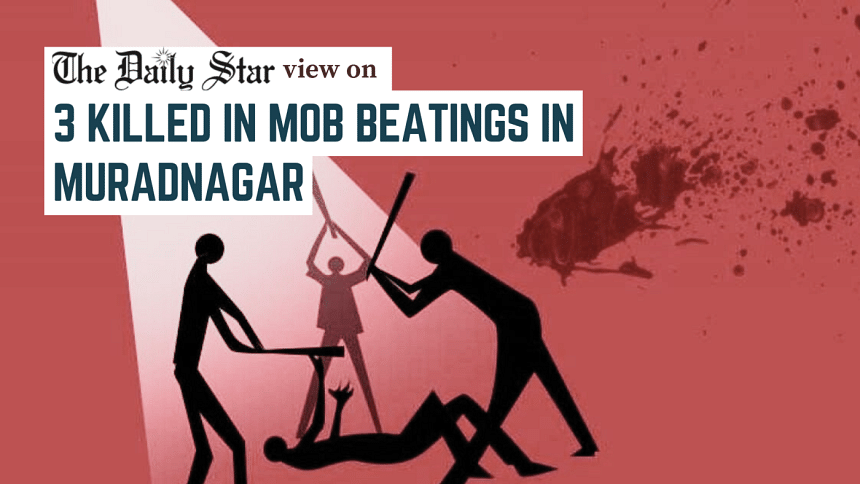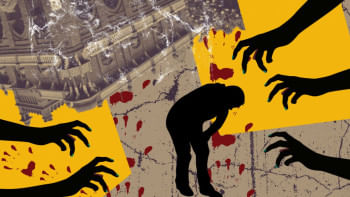We must send an undiluted message against mob violence

Cumilla's Muradnagar upazila has lately been in the news for the heinous treatment of a woman who was tortured, raped, and then filmed while disrobed—turning the incident, in the words of a commentator, into "a permanent sentence of shame and exposure" for the victim. Muradnagar is again in the news now, this time for a gruesome act of mob violence that left three members of a family dead and another critically injured on Thursday. The upazila connection here is but coincidental. What's notable is the persistence of these two most disturbing criminal trends of our time, despite widespread protests and firm pledges of action. Mob violence, in particular, seems to have become unstoppable.
Over the past week, six people were reportedly killed in mob violence. According to the Human Rights Support Society, at least 143 people died over the 10 months since the August 5 political changeover. Ain o Salish Kendra (ASK) puts the number even higher, at 179. Much has been made of the underlying causes behind this surge in mob violence, especially how it is being fuelled by misinformation, social tensions, or political motives, as again exemplified on Wednesday night by a mob that attacked a police station in Lalmonirhat and snatched away two convicts. The failure of the justice system and law enforcement is also largely to blame. Mob violence is a classic example of how crimes, if left unchecked, only engender more crimes. Despite this clarity, we are no closer to a solution than we were before. This is partly because of our inability to send a clear, undiluted message against this type of criminality.
Late last month, Tarique Rahman, BNP's acting chairman, condemned mob justice, calling it "an enemy of humanity." But there have been allegations of involvement by grassroots BNP leaders and activists in many mob activities. In the Lalmonirhat case, the OC of the attacked police station blamed the local unit of BNP and its affiliated organisations. The National Citizen Party (NCP), meanwhile, has come under scrutiny for its alleged involvement in multiple incidents. Most recently, its leaders and activists were linked to a violent confrontation at Patiya police station, which led to the OC's withdrawal. While NCP leaders have attempted to distance the party from mob activities—claiming that these are expressions of public outrage after years of repression—the fact remains that political parties have failed to send an unequivocal message supported by consistent action and internal accountability. In some cases, their silence, denial, or selective condemnation has only emboldened such acts, criminal or not, including by party members.
Even the interim government, while repeatedly assuring us that no mob activities would be tolerated, has frequently fallen short of backing those assurances with swift and firm action, raising concerns about implicit tolerance and even quiet complicity in some cases. This trend must be reversed. We all must come together and rise against this violent tide that can derail our journey back to democracy.


 For all latest news, follow The Daily Star's Google News channel.
For all latest news, follow The Daily Star's Google News channel. 








Comments